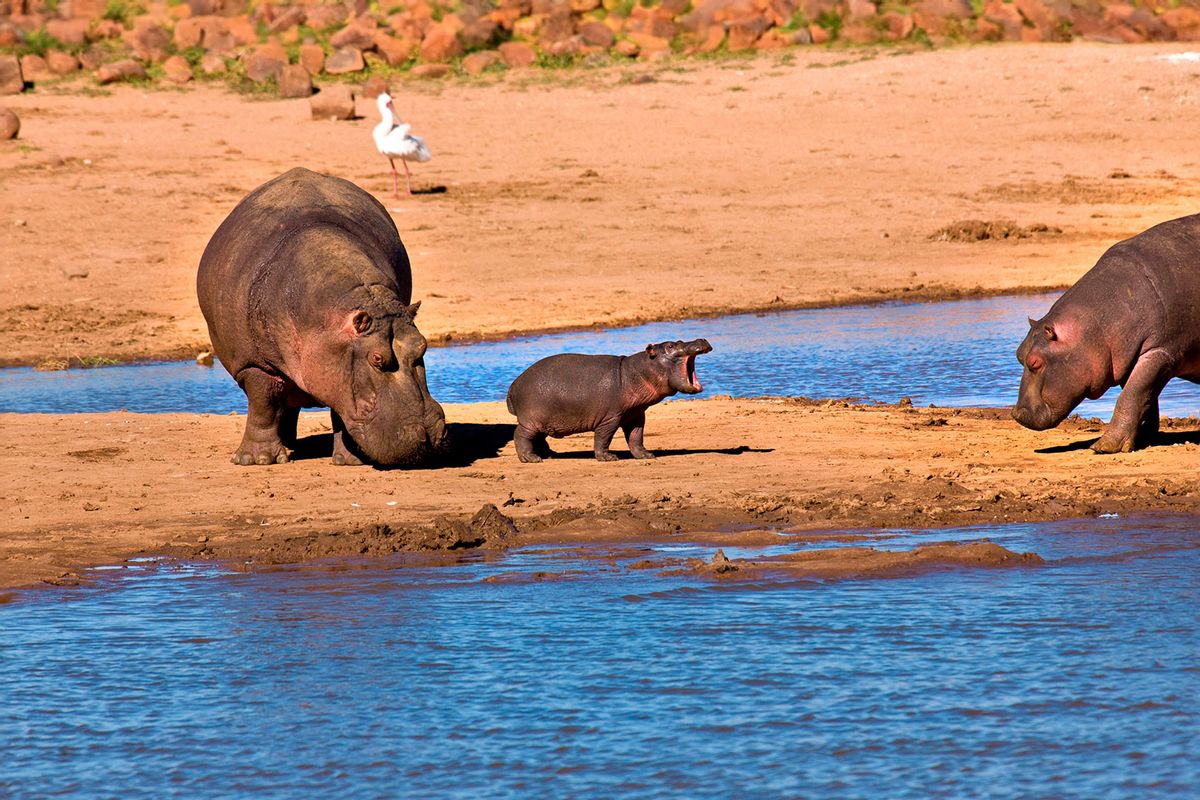As climate change continues to worsen the droughts afflicting Africa, millions of people face starvation as a result. In the southwestern nation of Namibia, nearly half of the 2.5 million citizens are grappling with food insecurity, with 84 percent of its food reserves being exhausted.
Now the government is paying hunters to slaughter hippos and elephants to help feed them.
"The Ministry will contribute 723 animals comprising 30 hippos, 60 buffalos, 50 impalas, 100 blue wilderbeast, 300 zebras, 83 elephants and 100 elands," the Namibian Ministry of Environment, Forestry and Tourism said in a statement. "The animals are sourced from national parks and communal area with sustainable game numbers." The statement argued that "with the severe drought situation in the country, conflicts are expected to increase if no interventions are made. To this effect, 83 elephants from identified conflict areas will be culled, meat will be allocated to the drought relief program under the Office of the Prime Minister."
World Weather Attribution, a collection of scientists and researchers who analyze severe weather events, attributed the current drought to the recent El Niño phenomenon; it did not directly link the drought to climate change, but observed that climate change exacerbates drought conditions during El Niño by increasing aridity.
While not much is known about hippopotamus intelligence, a 2022 study in the journal Science found that hippos can recognize the voices of their friends and potential enemies. Elephants, meanwhile, are also smart enough to form sentences with their rumbles — and are also uniquely vulnerable to climate change. Conservationists are determined to protect both groups of animals from poaching, although each one has histories of disruptive interactions with local humans.



Shares